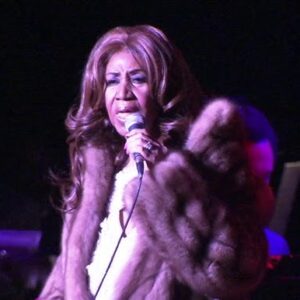Mary J. Blige is a name synonymous with raw emotion, soul-stirring melodies, and a powerful blend of R&B, hip-hop, and gospel influences. Over the past three decades, she has solidified her place in music history not only as a legendary artist but also as a songwriter whose deep emotional resonance has connected with listeners worldwide. Mary J. Blige’s music isn’t just about catchy hooks or chart-topping hits—it’s about the authenticity and vulnerability she brings to every song she writes and sings.
From her 1992 debut What’s the 411? to her latest releases, Blige’s ability to channel personal pain, triumph, love, and heartbreak into powerful, unforgettable tracks has earned her countless accolades and a devoted fanbase. Her songwriting is not just a vehicle for her personal catharsis but a tool for collective healing—a testament to the transformative power of music. Her contributions to the music industry are immense, and as a songwriter, she has paved the way for countless other artists to follow in her wake. What makes her songwriting truly unique, however, is her ability to create music that feels both intensely personal and universally relatable, a quality that draws listeners into her world.
In this article, we’ll explore the depths of Mary J. Blige’s songwriting process, uncovering how she draws from her life experiences, works with collaborators, and creates songs that speak directly to the soul. From her raw, vulnerable lyrics to her innovative approach to production, Mary J. Blige’s music is a testament to the power of collaboration and the profound emotional connection it creates between artist and audience.
The Songwriting Process: Inspiration and Emotions
Mary J. Blige’s songwriting process is deeply intertwined with her personal experiences. Her life story, filled with triumphs, heartaches, and struggles, is the wellspring from which much of her music flows. For Blige, songwriting isn’t just about creating catchy tunes—it’s a way of processing her emotions and finding healing in the face of adversity. Whether she’s writing about love, loss, or empowerment, her lyrics reflect a deep emotional honesty that resonates with listeners on a profound level.
Blige’s music often mirrors her own experiences, whether it’s the heartbreak she felt in her relationships or the emotional battles she faced growing up in a rough neighborhood in Yonkers, New York. Her ability to translate these experiences into relatable, soulful music is one of the key factors behind her success. In interviews, Blige has spoken about how music has always been a therapeutic outlet for her, allowing her to express feelings that words alone cannot capture. She uses her songs as a form of healing, offering both herself and her listeners a safe space to process complex emotions.
Songs like “No More Drama” and “My Life” are perfect examples of how Blige’s music serves as both a personal catharsis and a gift to her fans. “No More Drama,” in particular, became an anthem for many who were struggling with their own personal demons. It spoke to the universal desire to overcome hardship and find peace, a message that continues to resonate today.
Working with Collaborators: A Team Effort
Though Mary J. Blige is known for her deeply personal lyrics and raw emotional delivery, her songwriting process is anything but solitary. One of the keys to her success is her ability to collaborate with other talented songwriters, producers, and musicians. Over the years, she has worked with some of the biggest names in the industry, including Sean “Diddy” Combs, Jermaine Dupri, and Kanye West. These collaborations have played a vital role in shaping her sound and bringing her songs to life in ways that might not have been possible through her own efforts alone.
Blige’s approach to collaboration is one of balance—she knows when to stand firm in her artistic vision and when to allow the input of others to guide the process. This delicate dance between independence and teamwork is crucial in creating music that feels both personal and universally relatable. She is actively involved in every stage of the songwriting process, from conceptualizing the song’s message to fine-tuning the final production. This hands-on approach ensures that the essence of her original vision is never lost, even when working with other musicians and producers.
A perfect example of Blige’s collaborative spirit can be seen in her work with legendary producer Sean “Diddy” Combs on her early albums. Their partnership was pivotal in defining Blige’s sound, blending elements of hip-hop and R&B in a way that was fresh and innovative at the time. Diddy’s influence can be heard in the polished, yet streetwise production of tracks like “Real Love” and “You Remind Me.” At the same time, Blige’s willingness to let Diddy’s ideas complement her own vision helped create a sound that was undeniably her own.
Throughout her career, Blige has worked with other influential producers and songwriters to craft her signature sound. Her collaborations with The Neptunes, Kanye West, and Rodney Jerkins have allowed her to experiment with different genres while still maintaining the emotional depth and authenticity that her fans have come to expect. In each collaboration, Blige brings her own voice, her own struggles, and her own sense of vulnerability to the table, ensuring that her music remains true to who she is, no matter who she’s working with.
Crafting Lyrics that Resonate
One of the most striking aspects of Mary J. Blige’s songwriting is her ability to craft lyrics that resonate with listeners on a deeply emotional level. Blige’s lyrics are often raw and vulnerable, offering a window into her own soul while also speaking to universal themes of love, pain, strength, and resilience. Her ability to blend personal storytelling with universal emotions is what has made her music so enduring.
Blige’s lyrics are often characterized by their emotional honesty and vulnerability. She is unafraid to tackle difficult subjects, whether it’s the pain of a broken relationship or the struggle of overcoming addiction. In songs like “I’m Going Down” and “Be Without You,” Blige captures the heartache and yearning that come with love, while also conveying a sense of strength and resolve. Even in her most vulnerable moments, Blige’s lyrics convey a sense of empowerment that has made her music resonate with fans from all walks of life.
Her songs also explore themes of self-empowerment and personal growth. In “Just Fine,” Blige celebrates her own resilience and the strength it takes to rise above life’s challenges. The song is an anthem for anyone who has struggled and triumphed over adversity, and it’s just one example of how Blige’s lyrics can inspire and uplift.
The Role of Production and Melody
While Blige’s lyrics are undoubtedly the heart of her songs, the production and melody play a crucial role in bringing her vision to life. Blige has always been meticulous about ensuring that the music complements the emotional weight of her lyrics, and she works closely with producers to create a sound that enhances the message of each song.
Blige’s early work was heavily influenced by the hip-hop and R&B sounds of the 1990s, but over the years, she has incorporated elements of gospel, jazz, and even pop into her music. This genre-blending approach has helped her stay relevant while also pushing the boundaries of what R&B music can be. Her songs often feature lush, soulful melodies that perfectly complement the emotional depth of her lyrics, with beats that range from smooth and sultry to hard-hitting and anthemic.
Production-wise, Blige is known for her collaborations with top-tier producers who understand her vision. From the iconic, bass-heavy beats of “Family Affair” to the stripped-down, acoustic-driven production of “No More Drama,” Blige’s music spans a wide range of sonic landscapes. No matter the genre or production style, however, the emotional intensity of her vocals always takes center stage.
The Emotional Connection: Why Fans Relate
One of the reasons why Mary J. Blige’s music has had such a profound impact on her fans is because of the emotional connection she fosters through her songwriting. Her authenticity and willingness to share her personal struggles have created a bond between her and her audience that goes beyond music—it’s a shared experience of healing and growth.
Fans often speak about how Blige’s songs have helped them navigate their own life challenges. Her music has served as a soundtrack for many people’s personal journeys, whether they’re going through a breakup, battling addiction, or simply trying to find themselves. Her songs provide a sense of validation, reminding listeners that they are not alone in their struggles and that strength can be found even in the darkest of times.
In interviews, Blige has spoken about the profound connection she feels with her fans and how their support has kept her going throughout her career. She understands the power of music to heal and connect, and she uses her platform to uplift and inspire.
Conclusion: The Legacy of Mary J. Blige’s Songwriting
Mary J. Blige’s songwriting legacy is one of emotional depth, authenticity, and collaboration. Her music has touched millions of people around the world, and her ability to turn personal pain into powerful, relatable songs has made her one of the most influential artists of her generation. Through her songwriting, Blige has not only redefined what it means to be an R&B artist but has also set the standard for emotional honesty in music.
As Blige continues to create and collaborate, her influence on the music industry and the next generation of artists will undoubtedly remain profound. Her ability to blend raw emotion with powerful melodies, along with her unwavering commitment to authenticity, will ensure that her music continues to resonate for years to come. In the world of music, where collaboration is key, Mary J. Blige’s songwriting process stands as a testament to the transformative power of both personal expression and the artistry of others.





